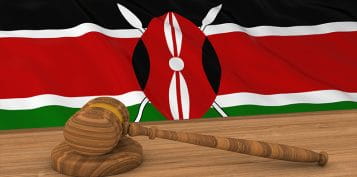PA Gambling Commission and Gaming Regulation
Gambling has a very interesting legacy in Pennsylvania, as almost all forms of gambling were illegal until 1971. A few decades later, in 2018, the US Supreme Court allowed Pennsylvania to regulate its gambling industry on its own. Nowadays, you can play almost any type of gambling game 100% safely and legally, and the main organization responsible for that is the Pennsylvania Gaming Control Board (PGCB) . So, stay tuned and learn the most important details about the PA Gambling Commission in this blog post!

We will provide you with a brief history of the PA Gaming Control Board, as well as its main functions and responsibilities. You will also learn more about the gambling establishments regulated by the commission, and you will find some top recommendations where you can play your favorite type of games legally. Check out the following boxes if you would like to jump directly to your most interesting topic, but a nice piece of advice is to read through the whole blog post.
History of the Pennsylvania Gaming Control Board

First things first, you should know that the historical legacy of this state commission is a little bit longer than the major changes from 2018 by the US Supreme Court. The official Gambling Commission PA history started in 2004 when it was established with the acceptance of the Race Horse Development & Gaming Act.
The commission was founded with the purpose to regulate the sports betting activities in Pennsylvania, and later, it acquired new roles, such as the regulation of casinos and slot machines. Indeed, its main source of revenue is slot machines.
The Board legalized table games in 2010, while nowadays, it even regulates the online gambling scene in the state, and Pennsylvanian players can play legally at some of the best online casinos in the US. With this in mind, let’s take a look at the main responsibilities of the PA Gambling Commission in the following paragraph.
Functions & Responsibilities of the PA Gaming Commission
The Pennsylvania Gambling Control Board has a wide variety of functions and responsibilities with the common purpose of regulating the sector in the state by enhancing the local revenues from gambling. It does so by applying the gambling laws in Pennsylvania or more precisely, it is responsible for the integrity and legalization of a wide variety of gambling activities via licensing, regulation and even law enforcement. Check out this list with the main functions and responsibilities of the PGCB.
- Follows the guidelines and requirements of the Indian Gaming Regulatory Act of 1988.
- Issues gaming licenses to qualified operators of gaming facilities in the state.
- Investigates gaming license applications.
- Performs in-situ integration analysis of the law statutes with the gaming facilities.
- Regulates the gaming operators and the tribal representatives.
- Has law enforcement powers.
- Assists businesses in the horse racing industry.
- Organizes public meetings and reports.
- Helps gaming operators fill out the license application forms.
- Enhances Indian and broad economies, and promotes tourism in PA.
- Game testing via the proprietary slot-machine testing center.
- Regulates problem gaming via the Office of Compulsive and Problem Gambling.
The Board hires qualified entities and experts to follow for the righteous implementation of all these and many other functions. You should also know that the PA Gaming Control Board is responsible for the regulation of the casino and horse racing industries, but there are certain areas that it does not oversee, such as the state lottery, charitable bingo, and other non-profit games of chance.
Application for a License by the PA Gambling Commission
Of course, one of the main functions of the PA Gambling Commission is to license casino and sports betting establishments in the state. It is kind of difficult, rather than a quick and easy process, to apply for a gambling license. Firstly, if you want to apply for a license by the PA Gambling Commission, you should know that there are several different types of licenses.
The PGCB issues Manufacture, Manufacturer Designee, Supplier, Gaming-Related Service Provider, Principal/Key Employee, and Gaming Employee licenses, and each of them has specific requirements. In general, some key steps apply to most types of licenses. Here is how to apply for a license:
- Establish a principal place of business within the state.
- Acquire all data and documents required for the application form.
- Complete the specific application and information disclosure forms.
- Submit the application fee in connection with the application.
- Provide access to the gaming facility and assist the board inspectors.
- Pay the licensing fee upon issuance of a license.
- For license renewal, pay the renewal fee for a term of three years.
You should complete all the necessary application forms and send them to the Board along with the required application fee. After that, there is a comprehensive review stage when the Gambling Commission PA agents will meet and investigate the applicants and all the submitted documents. The investigation process may take at least a month or even half a year, and it depends on the specific case.
For example, the renewal of an already existent license has a 60-day deadline to reapply prior to its expiration. You could expect the investigation stage to take much longer when you apply for the first time. Moreover, anytime during the review process, the agents from the Pennsylvania Gambling Commission may further request documentation or any information from the applicants.
Regulation of Gambling Problems
The Pennsylvania Gaming Control Board takes responsible gambling very seriously, as there are nearly 200,000 gamblers with gaming problems! Pennsylvania became the first state to implement self-exclusion tools in December 2020, thus it provides much safer and better solutions and the top online casino operators in PA fully support responsible gambling.
The PGCB Responsible Play platform offers very important services, such as identification of gambling-related issues and provision of gambling addiction-related information. The self-exclusion tools are perhaps the most important, as they allow you to voluntarily quit any gambling activities, including online casinos and DFS sites.
Additionally, one of the main responsibilities of the PA Gaming Control Board is to make regular public meetings, where they discuss important topics concerning its activity. Social responsibility is one of the main topics in these meetings, and it is made public, which is another proof that they take this area of gambling very seriously. You can see an example of a PGCB meeting right next:
The PGCB also has its own Office of Compulsive and Problem Gambling that verifies if the gambling facilities implement righteously the different socially responsible activities. That being said, every casino operator in Pennsylvania submits a problem-gambling plan to the Office of Compulsive and Problem Gambling. It includes information on employee training, implementation of self-exclusion tools, underage gambling prevention procedures, and other essential materials.
List of Legal and Illegal Gambling Games in Pennsylvania
Nowadays, you can play just about any gambling game 100% legally in Pennsylvania. They are regulated by the PA Gambling Commission, or if they are not, they are not banned either. For instance, the Pennsylvania Lottery is such a gambling game that is not regulated by the PGCB and yet, it is legal. Check out more details in the next table with legal games and top recommendations on where to play.
| Game Type | Legal Status | Where to Play? |
|---|---|---|
| Slot Machines | ✔️ Legal | Harrah’s Philadelphia |
| Video Slots | ✔️ Legal | Caesars Casino |
| Video Poker | ✔️ Legal | 888 Casino |
| Online Table Games | ✔️ Legal | Unibet Casino |
| Live Dealer Games | ✔️ Legal | WinStar Casino |
| Poker | ✔️ Legal | Rivers Casino Philadelphia |
| Online Sports Betting | ✔️ Legal | Rivers Casino Pittsburgh |
| Pari-Mutuel Sports Betting | ✔️ Legal | Wind Creek Bethlehem |
| Daily Fantasy | ✔️ Legal | FanDuel |
| Bingo | ✔️ Legal | Westlawn Program Bingo |
| Lottery | ✔️ Legal | The Pennsylvania Lottery |
If you want to find out more top recommendations, you can check out our blog post about the best local casinos in the US. There, you will find top casinos, such as Borgata, MGM Grand Casino, Harrah’s Philadelphia and Rivers Casino, which are also some of the best casino venues all over the US. Of course, this list can be complemented by many other gambling establishments regulated by the PA Gaming Control Board, such as Hollywood Casino at Penn National Race Course.
Other Interesting Facts About the PA Gambling Commission

Well, this blog post is at the end, but there is a ton of other interesting details and facts about the Pennsylvania Gambling Control Board that we would like to share with you. For example, you can contact the Board via your contact point or by calling (717) 346-8300. Email is another popular way of contact if you have any questions, while most important personnel from the Board also have LinkedIn profiles, such as Denise J. Smyler (Chair Commissioner), Claire B. Yantis (Administrative Director), and R. Douglas Sherman (Chief Counsel).
Another interesting fact is that the application fees and all the other license-related taxes can range between $1,500 and $170,000, while the standard term of a license is five years. This is a long duration and yet, this period is different for the specific types of PGCB licenses. For instance, a Manufacturer License has a duration of just one year. Renewal of a license should be done at least two months before the expiry, while the renewal is for a term of three years.
The PA Gaming Commission has a lot of duties and responsibilities, and we would like to touch on another one of its very important branches – game testing. It comes down to the State Gaming Lab, which is public, and it is located above the PGCB’s Harrisburg office. This center specializes in slot machine testing, and it was established in September 2008. Each gaming establishment in Pennsylvania that is regulated by the PGCB sends a “payout report” on each of their machines, then the Board measures and confirms the specific payouts of the slot machines.
PA Gambling Commission: FAQ
If you want to learn more about the PA Gambling Commission, please read the full blog post or check out the following Q&A section! We featured important questions about the Board, so please don’t miss the details before you play in a casino in Pennsylvania.


